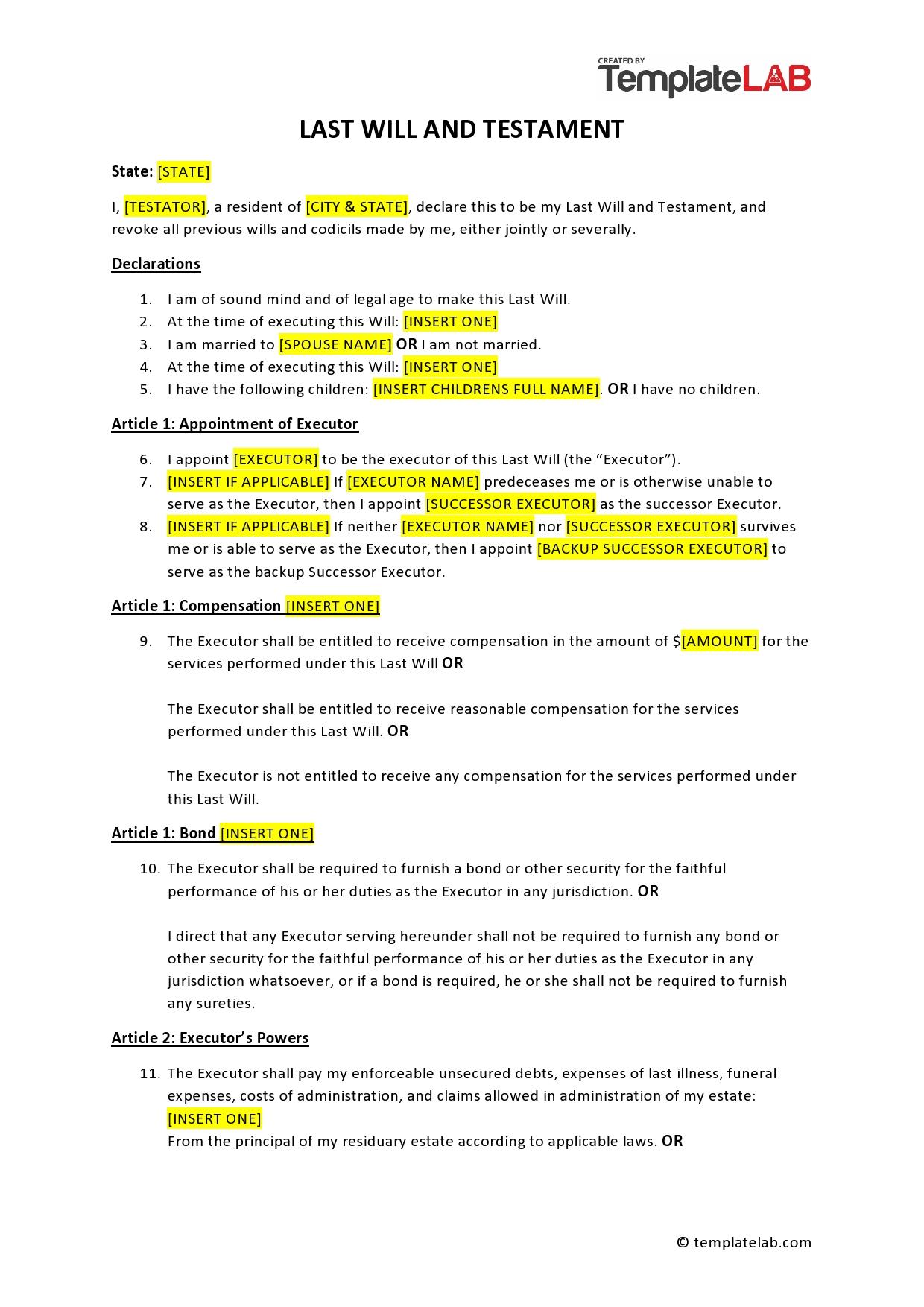What is a Last Will and Testament?
A Last Will and Testament is a legal document that outlines your wishes for what happens to your property and belongings after you die. It’s a way to ensure that your assets are distributed according to your desires and that your loved ones are taken care of.
Why Do You Need a Last Will and Testament?
There are several reasons why having a Last Will and Testament is important:
Appointing an Executor: You can choose who you want to be in charge of carrying out your wishes and settling your estate.

Image Source: templatelab.com
What Should Be Included in a Last Will and Testament?
A typical Last Will and Testament includes the following:
Identification: Your full name and address.
How to Create a Last Will and Testament
There are several ways to create a Last Will and Testament:
1. Hiring an Attorney: This is the most reliable option as an attorney can ensure that your will is legally sound and meets all the necessary requirements.
2. Using Online Will-Making Services: These services offer pre-filled templates that you can customize. However, it’s important to review the terms and conditions carefully.
3. DIY Will Kits: You can purchase a will kit online or at a stationery store. These kits provide instructions and forms that you can fill out.
Conclusion
A Last Will and Testament is a crucial legal document that can provide peace of mind for you and your loved ones. By carefully considering your wishes and following the proper procedures, you can ensure that your estate is distributed according to your desires and that your legacy lives on.
FAQs
1. Do I need a Last Will and Testament if I’m young and healthy? Even if you’re young, it’s a good idea to have a Last Will and Testament in place. Accidents and unexpected illnesses can happen at any age.
2. Can I change my Last Will and Testament after I’ve signed it? Yes, you can. You can create a new will or amend your existing will.
3. How often should I review my Last Will and Testament? It’s recommended to review your will every few years, especially if there are significant changes in your life, such as the birth of a child, a marriage, or the death of a loved one.
4. Can I leave my entire estate to charity? Yes, you can. You can designate a charity or multiple charities as the beneficiaries of your estate.
5. What happens if I don’t have a Last Will and Testament? If you die without a will, your estate will be distributed according to the laws of intestacy. This means that your assets will be divided among your closest relatives, which may not be what you intended.
Last Will Examples